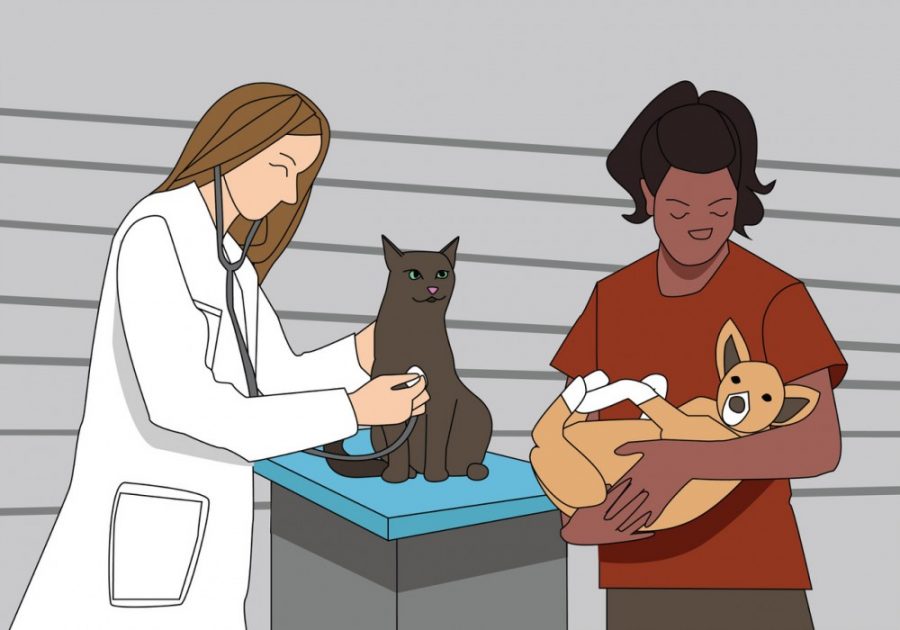A University of Minnesota student group travels around Minnesota providing free veterinary services to under-served Native American communities.
The Student Initiative for Reservation Veterinary Services provides free veterinary services for Native American reservations across Minnesota. The group visits five different reservations, temporarily setting up shop in local community centers.
In 2018, the group offered 579 physical exams for cats and dogs and performed 140 surgeries. The group also treats other animals injured on reservations.
Many reservations lack proper veterinary services because they do not have a full-time clinic nearby. From April 26-28, SIRVS traveled to the Leech Lake Band of Ojibwe reservation, the most populated in the state, to treat animals in the area.
“There are what we would call barriers to care or lack of access to care. In particular, one of the big things is lack of transportation,” said Larissa Minicucci, a veterinary professor who founded SIRVS in 2009. “Oftentimes, the nearest veterinary clinic for many patients is over an hour away.”
SIRVS differs from a traditional vet service because they set up in community centers, like gyms. Other services generally require an individual to drop off their pet, but SIRVS works with the community closely, building their trust.
“One thing that we really pride ourselves on is our relationships with the communities, and one way we do that [is] through transparency,” said Jonathan Elbaz, president of SIRVS. “There are no barriers between where we do exams with the clients and where we do the surgeries. If owners want to watch their pet’s surgery, they are more than welcome to.”
In 2018, SIRVS traveled to five different reservations, typically for one or two days at a time. Other communities have since reached out for their services.
Although SIRVS has grown in recent years, the need for vet services in these communities extends beyond what they can offer.
Leech Lake Legacy is a community group that provides cost-subsidized veterinary services at the Leech Lake reservation. They host two transport clinics, one of which is in cooperation with the University’s College of Veterinary Medicine.
“Any geography that is remote or where there is economic disadvantage, veterinary care is just unattainable,” said Craig Berdan, treasurer of Leech Lake Legacy. “There are pockets of this all over the state, all over the country, and even in parts of the metropolitan area, [anywhere] there are communities that are under-served.”
Minicucci said SIRVS hands out educational information created by University veterinary students to inform residents about common animal diseases and conditions, including information about tick-borne diseases.
While providing services to the reservation community, SIRVS has a youth program to involve them with veterinary medicine and let them explore the field.
“One thing we do is provide a youth program for any age range we can tailor to. We have puzzles and games for the little kids, and for the older kids we have activities to get them excited about veterinary medicine,” said Elbaz. “[This is] to show the youth on the reservation that veterinary medicine is an attainable career for them and that they can bring that back to their communities.”









